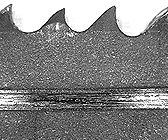Estos son algunos ejemplos de materiales que hemos probado este mes:
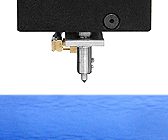
Mecánica:
• Nanoindentación de fases individuales dentro de la sección transversal del metal.
• Nanoindentación dureza de las láminas delgadas de polímero
• Prueba de rayado macro de recubrimientos de nitruro de titanio.
• Prueba de rayado macro del recubrimiento de xilano.
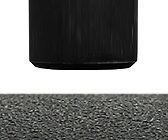
Perfilometría 3D sin contacto:
• Rugosidad de los tejidos no tejidos
• Topografía del sellador de tuberías
• Medición de la coplanaridad de matrices de rejilla de bolas
• Dimensiones de las lentes asféricas
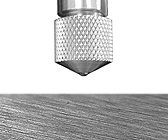
Tribología:
• Prueba de fricción de la grasa para bicicletas.
• Pruebas de desgaste a alta temperatura de material de fundición cerámico.
Estos son algunos ejemplos de materiales que hemos probado este mes:

Mecánica:
• Nanoindentation of thin, hard oxide coatings
• Nanoindentation & scratch of hard titanium nitride coatings
• Microindentation compression of foams
• Microscratch of thin, hard oxide coating

3D sin contacto Perfilometría:
• Roughness & grain size analysis of dental implant
• Roughness of wood flooring finishes
• Roughness of building drywall
• Coplanarity of pin grid array under elevated temperature

Tribología:
• Wear testing of cryogenically hardened steel
• Friction testing doggie treats
• Tribocorrosion of dlc coatings
Perfilómetro para mediciones de grandes superficies
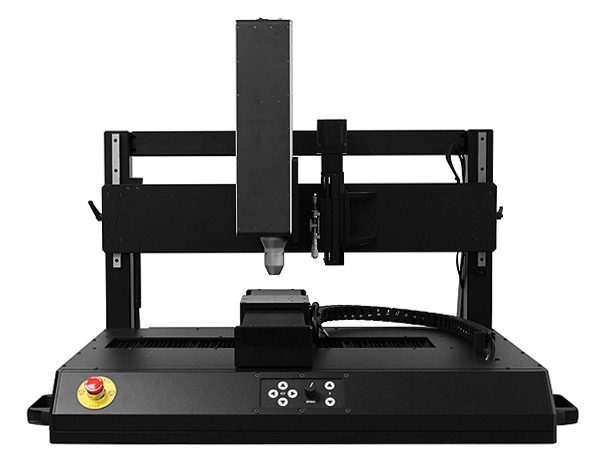
Conoce la ST500 Perfilómetro. Tras años de éxito con los modelos ST400 y HS1000, Nanovea presenta el ST500, que ofrece mediciones de gran superficie a alta velocidad sin necesidad de unir imágenes. El ST500 tiene un recorrido de 400 mm en los ejes X-Y y de 50 mm en el eje Z, con una velocidad máxima de hasta 200 mm/s. El sistema puede equiparse con un lápiz óptico o un escáner lineal para realizar mediciones ultrarrápidas (384 000 puntos por segundo). A diferencia de otras tecnologías, cada punto es una profundidad de campo directa y completa durante la medición de grandes superficies, sin necesidad de reenfocar. También se puede utilizar una cámara con zoom de vídeo para proporcionar una función automática de medición de grandes superficies en una plataforma de escritorio fácil de usar. Ver nota de aplicación Por ejemplo.
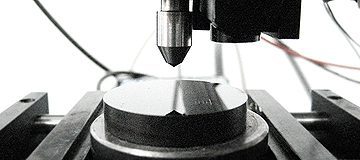
Prueba de adherencia al rayado de recubrimientos de discos
En este estudio, instrumentado prueba de rascado Se utiliza para evaluar los modos de fallo de las capas superiores de los CD y BD. Esta prueba permite a los usuarios comparar cuantitativamente la resistencia al rayado de diferentes recubrimientos protectores.

Evaluación del desgaste mediante tribómetro de alta carga
Estos son algunos ejemplos de materiales que hemos probado este mes:

Mecánica:
• Nanoindentación y rayado de monedas en blanco.
• Nanoindentación de recubrimiento galvanizado
• Nanoindentación dma de recubrimiento adhesivo epoxi

Perfilometría 3D sin contacto:
• Rugosidad del punzón de la comprimidora.
• Altura de los escalones de las películas de óxido de titanio
• Dimensiones del borde biselado metálico

Tribología:
• Prueba de desgaste del teflón enriquecido.
• Prueba de desgaste del compuesto de nylon.
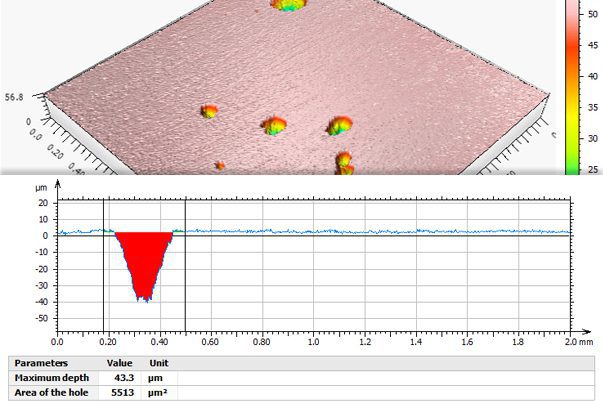
La perfilometría de corrosión es la aplicación del año
A pocas semanas de la Conferencia sobre Corrosión de Nace, Nanovea destaca la medición de la corrosión por picaduras como su aplicación de perfilometría más popular de 2014. Nanovea Perfilómetro Se ha convertido rápidamente en la opción preferida por la comunidad especializada en corrosión por su precisión y fiabilidad en las mediciones. Las principales áreas de interés incluyen la profundidad, el volumen, el área y la densidad de las picaduras. Obtenga más información en la nota de aplicación de este mes que se incluye a continuación.
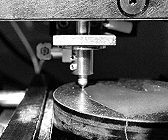
Distribución de la dureza del metal endurecido mediante nanoindentación
En esta aplicación, el probador mecánico Nanovea en nanoindentación El modo se utiliza para medir el
Distribución de la dureza de la superficie endurecida en la sección transversal de un metal endurecido superficialmente.
Distribución de la dureza del metal endurecido mediante nanoindentación
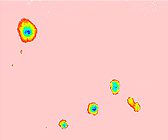
Análisis de superficies corroídas mediante perfilometría 3D
En esta aplicación, el Nanovea PS50 Perfilómetro se utiliza para analizar la morfología de la superficie del
Muestras tras su uso en entornos corrosivos. Rugosidad superficial, pérdida de material y picaduras en la
Se miden muestras de la superficie para obtener más información sobre el mecanismo de corrosión.
